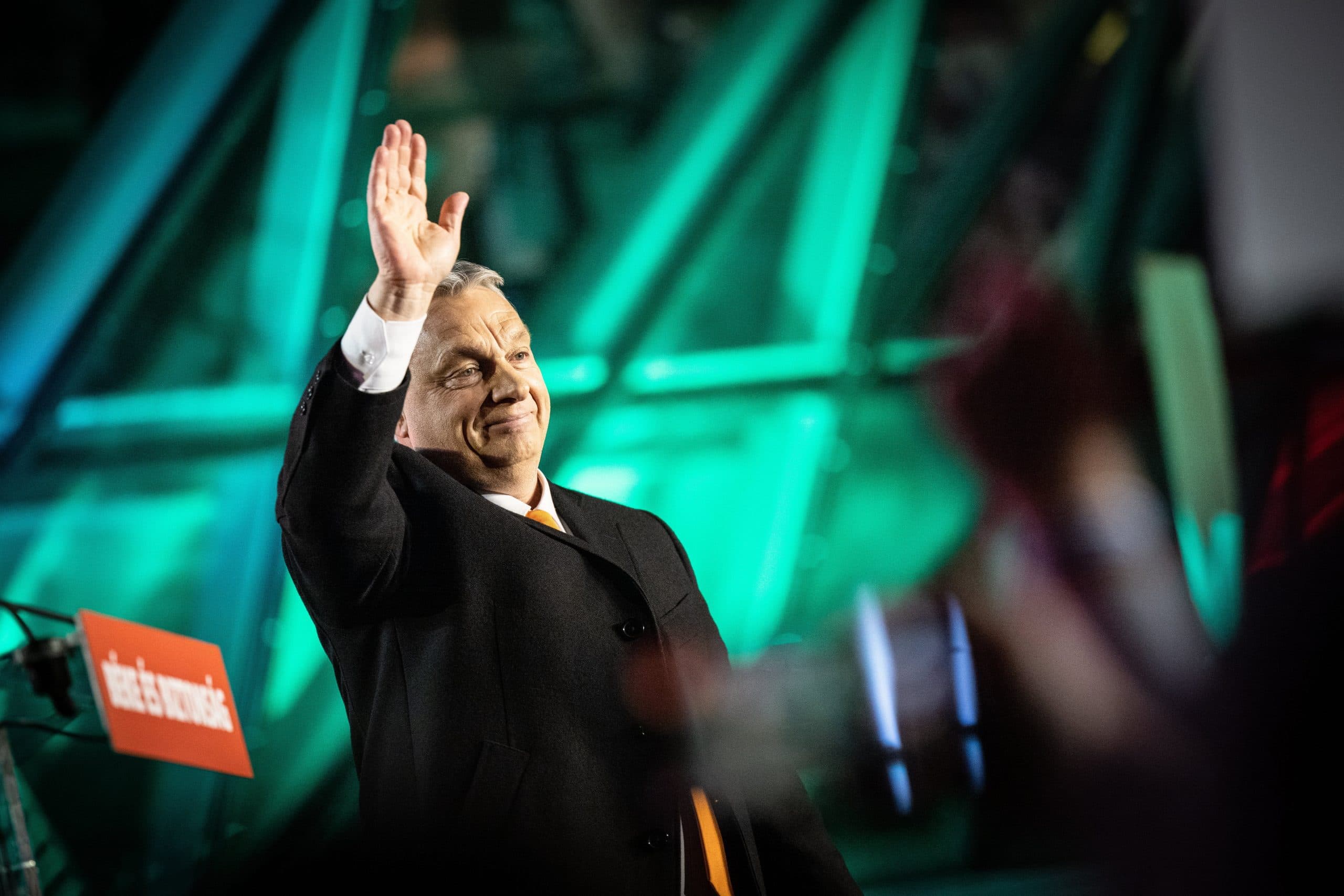
The parliamentary elections held in Hungary on Sunday, April 3rd, 2022, gave a very large majority to Viktor Orbán’s party, in power without interruption since 2010. He can thus begin a fourth consecutive term in office with 53.1% of the vote and 135 seats out of a total of 199—a super-majority or constitutional majority of 2/3. The heterogeneous opposition alliance that had formed among six other parties behind Peter Márki-Zay won only 35% of the vote and 56 seats, while the new far-right Mi Hazánk party entered parliament for the first time with 6% of the vote and one seat.
While the score was predicted to be close, the victory for Viktor Orbán is clear and uncontested. International observers went to the polling station to ensure the fairness of the vote, and no manipulation or obvious fraud in the vote has been noted to date. The democratic dimension of the Hungarian vote is therefore not in doubt, but the opponents of the Hungarian regime stress, as in 2018, that the vote was “free but not fair,” blaming the excessive interference of government communication in the campaign—criticisms that have not yet been levelled at other campaigns, although some are likely to attract criticism for their lack of impartiality.
Overall, congratulations from European leaders to the reappointed prime minister have been slow or lukewarm, while the majority of European media outlets have been critical. No official reaction came from the offices in Paris, Berlin, or Rome.
Peter Márki-Zay campaigned by strongly denouncing Viktor Orbán as a “Hungarian Putin.” The issue of the Russian-Ukrainian war offered the perfect opportunity to stigmatise the personality of the Hungarian Prime Minister, who sought above all to maintain a position of equilibrium favourable to peace in Hungary’s interest. The French centre-right organ Le Figaro described Orbán as “pro-Putin” a few weeks before the election. Volodymyr Zelensky’s repeated attacks on Hungary’s perceived insufficient support for the war in Ukraine added fuel to a flame further fed by Orban calling Zelensky an “opponent”—even though Hungary repeatedly condemned Russian aggression and played its full part in welcoming Ukrainian refugees. Zelensky supported Orban’s opposition, making Zelensky a political adversary, seeking to weaken the prime minister’s position in a national election. To the media, this name calling only generated further evidence of Orbán’s guilt in the eyes of Western European opinion. Similar reactions can be seen in the Italian press. Il Corriere della Sera highlighted Putin’s congratulatory telegram to Viktor Orbán.
Anxious to throw their support behind Orbán’s opposition, several French media outlets such as Le Monde and the international relations analysis journal Courrier international sought to normalise the far-right party Jobbik, which was part of the opposing coalition, by describing it as having ‘evolved’ since 2015: “this party has gradually refocused since 2015 until it now calls itself pro-European and centre-right,” it was stated a few days before the election. The Italian newspaper Dire also welcomed Jobbik’s “revolution,” from neo-Nazism to the anti-Orbán front. Praise for Jobbik’s transformation can also be found in the columns of certain British press organs.
The BBC had not spared Viktor Orbán: in her op-ed on Monday, April 4th, columnist Katya Adler explained that “Victory for Hungary’s Orbán means a headache for the EU.” “You could almost hear the collective thud of EU hearts sinking on Sunday night as Viktor Orbán made his victory speech,” she says.
Finally, the German press insists on the locked nature of the election, which did not really give the opposition a chance: for Der Spiegel, it is above all the victory of the Orbán “system.”
For their part, the leaders of the Visegrad group used very measured statements to welcome Orbán’s victory. “We have to respect democratic elections in Hungary,” said Czech MEP Tomáš Zdechovský, who deplores the current difficult relations within the Visegrad group. The Polish Prime Minister remained cautious, recalling that unlike Germany, Hungary has never had any problem supporting sanctions against Russia: “We have to see that, regardless of how we approach Hungary, this is the fourth such win and we have to respect democratic elections … it’s Germany that is the main roadblock on sanctions. Hungary is for the sanctions.” Some European media outlets are keen to see the Visegrad group break up, but it is still too early for them to claim victory in this sense. The interests that unite the Central European countries are still too strong for their rapprochement to be shattered by the Russian-Ukrainian war.
Sovereignist Matteo Salvini and Rassemblement National candidate Marine Le Pen both congratulated Viktor Orbán. The leader of the Chega party in Portugal, André Ventura, did the same. They all call for the consolidation of a genuine conservative alliance at the European level.
Bravo Viktor!
— Matteo Salvini (@matteosalvinimi) April 3, 2022
Da solo contro tutti, attaccato dai sinistri fanatici del pensiero unico, minacciato da chi vorrebbe cancellare le radici giudaico-cristiane dell’Europa, denigrato da chi vorrebbe sradicare i valori legati a famiglia, sicurezza, merito, sviluppo, solidarietà… (1/2) pic.twitter.com/YZHxgOcIiP
🇫🇷🇭🇺 Félicitations à Viktor Orbán pour sa victoire écrasante aux élections législatives en Hongrie.
— Marine Le Pen (@MLP_officiel) April 3, 2022
Quand le peuple vote, le peuple gagne ! pic.twitter.com/UYFfsAvhFL
Parabéns ao povo húngaro e ao primeiro-ministro Orban. Conseguiu uma vitória retumbante apesar de todos os esforços de boicote das forças burocráticas e globalistas de Bruxelas. Espero que nos possamos encontrar em breve em Lisboa ou em Budapeste! pic.twitter.com/i1u4ZVNYup
— André Ventura (@AndreCVentura) April 4, 2022
